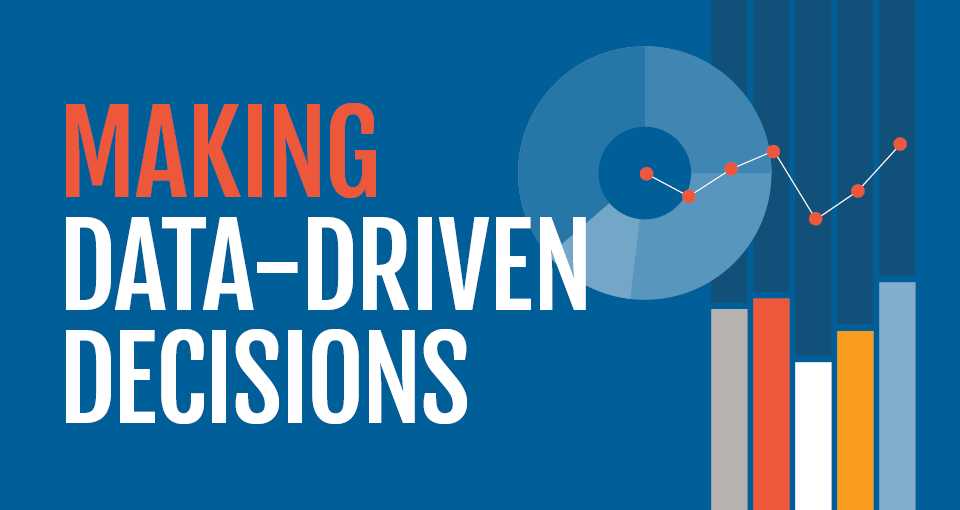
Data-Driven Decisions: The Power of Analytics in Digital Marketing
By Udit Agarwal

In the rapidly evolving digital marketing landscape, businesses are amidst a sea of Data-Driven Decisions generated by online interactions. The sheer volume of information can be overwhelming, but within this ocean of data lies the key to unlocking unparalleled insights and driving strategic decision-making. The rise of analytics in digital marketing has transformed the way businesses understand, engage, and convert their target audiences.
The Data Revolution in Digital Marketing
The advent of the digital age brought an unprecedented ability to collect and analyze vast data. Every click, scroll, and interaction leaves a digital footprint, providing marketers with valuable information about consumer behavior. The shift from traditional to digital channels has amplified the importance of harnessing this data to gain a competitive edge.
Understanding Consumer Behavior
Analytics allows businesses to gain a deep understanding of consumer behavior. Marketers can create comprehensive profiles of their target audience by tracking website visits, social media engagement, and email interactions. This insight goes beyond demographic data, delving into preferences, purchase patterns, and consumer devices. Armed with this knowledge, marketers can tailor their strategies to resonate with their audience on a personal level.
Real-Time Performance Monitoring
Unlike traditional marketing channels, digital marketing offers the advantage of real-time performance monitoring. Analytics tools provide instant feedback on the success of campaigns, enabling marketers to make immediate adjustments. If a particular ad isn’t resonating with the audience or a landing page isn’t converting, data analytics pinpoint the issue, allowing marketers to refine their approach.
Personalized Marketing Campaigns
One of the most significant benefits of data-driven decisions is the ability to create highly personalized marketing campaigns. By analyzing past interactions and preferences, businesses can deliver targeted content and promotions that are more likely to resonate with individual consumers. This personalization enhances the customer experience and increases the likelihood of conversion.

Maximizing ROI with Attribution Modeling
Attribution modeling is a crucial aspect of digital marketing analytics. It involves assigning value to each touchpoint in the customer journey, allowing businesses to understand which channels and interactions contribute most to conversions. This insight empowers marketers to allocate budgets more effectively, focusing on the channels that deliver the highest return on investment (ROI).
A/B Testing for Optimization
A/B testing, or split testing, is fundamental in digital marketing analytics. By comparing two webpage versions, email or ad, marketers can determine which performs better in engagement or conversion. This iterative process of testing and optimizing ensures that marketing efforts are continually refined for maximum impact.
Predictive Analytics for Future Insights
Predictive analytics takes data-driven decisions to the next level by forecasting future trends and behaviors. By leveraging machine learning algorithms, businesses can identify patterns in historical data to make predictions about future outcomes. This proactive approach enables marketers to stay ahead of the curve, adjusting strategies based on anticipated shifts in consumer behavior.
Enhanced Customer Retention Strategies
Analytics isn’t just about acquiring new customers; it’s equally vital for retaining existing ones. Businesses can identify pain points and areas for improvement by analyzing customer interactions and feedback. Understanding customer behavior enables the development of targeted retention strategies, such as personalized loyalty programs or re-engagement campaigns.
Overcoming Challenges with Data Governance
While the potential of data-driven decisions in digital marketing is immense, it’s crucial to address challenges related to data governance. Data accuracy, privacy compliance, and ethical use of customer information are paramount. A robust data governance framework establishes guidelines for collecting, storing, and analyzing data, fostering consumer trust and transparency.
The Future of Data-Driven Marketing
As technology advances, data’s role in digital marketing is poised to become even more integral. Artificial intelligence and advanced analytics tools will further automate processes, giving marketers more profound insights and accurate predictions. The convergence of data from various channels, known as omnichannel analytics, will enable a holistic view of the customer journey, facilitating seamless and consistent experiences across touchpoints.
Conclusion
In the digital age, where information is abundant, and attention spans are fleeting, the power of data-driven decisions cannot be overstated. Analytics in digital marketing transforms raw data into actionable insights, guiding marketers to make informed decisions that drive results. Data analytics empowers businesses to stay agile and responsive in an ever-evolving marketplace, from understanding consumer behavior to optimizing campaigns in real-time.